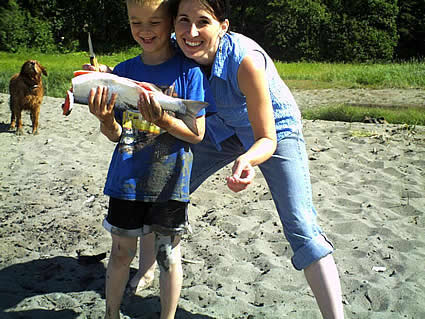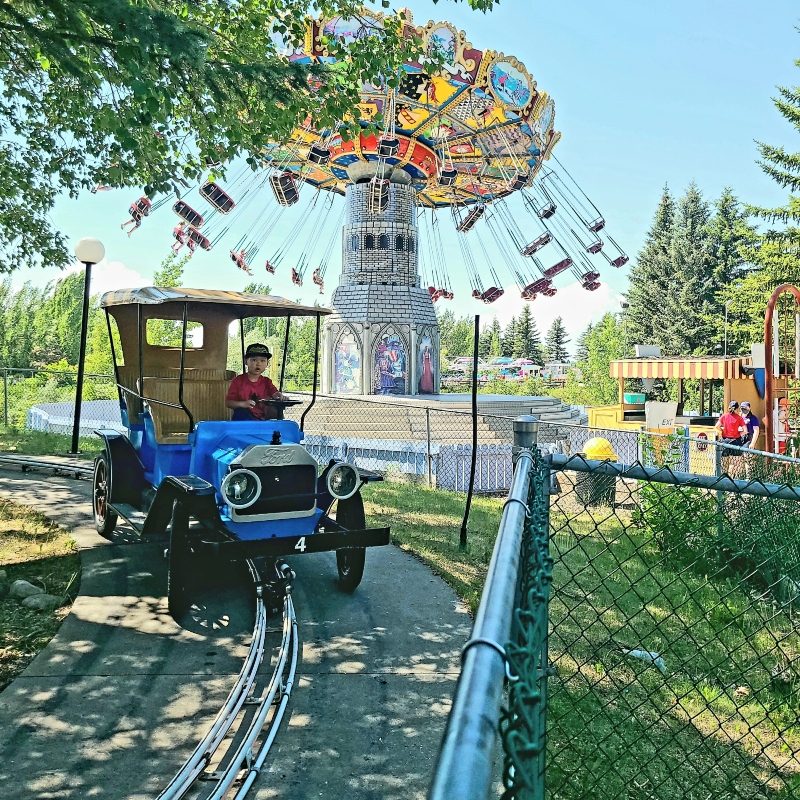Still the last frontier
This wild land inspires awe

When my grandfather was born in a little Alaskan village, dogsledding to school wasn’t uncommon—it was expected. Today, I drop my children off to school in a mini-van (no dogsledding for me), and yet Alaska still remains shrouded in a kind of Northern mystique, unique in what it can offer the travelling visitor in beauty, relaxation and good healthy fun.
My grandfather—proud of his heritage and of the successes born of hard work and determination—considers moose nose a delicacy. I consider moose nose a fine thing to stay on the moose, provided he steers clear of my perennial bed.
Down on the Kenai Peninsula, moose are plentiful, not only frequently seen along the highways, but also getting into lilac bushes, raspberry patches and gardens. I have a vivid childhood memory of my petite mother looking out of our kitchen window, letting out a shriek and running out of the house, broom in hand, trying in vain to chase off a large mother moose who had managed to hop over the six-foot garden fence.
Bountiful land
Alaskans tend to make the most of the summer months, most of us fishing whenever possible in the hope that we might fill our freezers and jars and barbeque grills with nature’s delicious bounty. Dip-netting on the famous Kenai River this past July, I went home with one salmon to my name. But when I went out the second time, as we say it here in Alaska, “the fish were in.” The electricity that flows through the river when a large school of salmon swim in from the Pacific, is something that can only be experienced. Our nets were dipping into the water and back out as fast as we could, fish flopping all over the bottom of the boat. We stayed at it until our arms ached—and our sides, from laughing so much—and I came home covered in scales, a few days worth of salmon to process and put away, and a host of fishing tales that would last long through the coming winter.
Visitors to Alaska exclaim often at the scenic beauty of this rugged land, something I didn’t fully understand until I spent a few years “outside,” which is our affectionate term for anywhere but Alaska.
When my friends in Texas would point in wonder at a sunset, I would inwardly think, “That’s decent—but where is the ocean and the mountains that are supposed to go with it?” The sunsets I had grown up with in Alaska spread their golden glory over snow-laden mountain ranges, glinting off the steep slopes and playing all the way across the rich Cook Inlet waves.
Staying wild
A lot has changed in Alaska since the time my grandparents built their homestead, a time when you ordered six months worth of flour, beans, and sugar at a time because there was no such thing as a local grocery store. Today, we have all the amenities of modern life—laptops, latte stands and the latest clothing fashions—and yet Alaska still remains it’s wild and rugged self. There is something in this place that makes it impossible to domesticate, and I suppose that very thing is the magic that brings so many people here. Guests sit on our large viewing deck at the Diamond M Ranch, sipping coffee while watching caribou slowly migrate through the river-fed wetlands, and shake their heads in wonder and awe. This is exactly why Alaska is still called the last frontier.
Proud to be of Alaska Native heritage, Molly Aley enjoys writing, playing on the Alaskan beaches with her five children and helping visiting tourists enjoy the bounties of this great state. For more information about vacationing on the Kenai Peninsula, please see www.diamondmranch.com.






